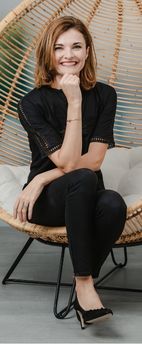The early years are a critical time in a child's development. During this period, their brains are like sponges, soaking up information and forming the foundation for future learning. This is why choosing the right educational approach for your child is so important.
Thankfully, there's a wealth of educational philosophies designed to nurture young minds. Here's a closer look at three of the most popular approaches:
1. Montessori:
Developed by Dr. Maria Montessori, this method emphasizes self-directed learning in a carefully prepared environment. Montessori classrooms are filled with specialized materials designed to encourage exploration and mastery of specific skills. Teachers act as facilitators, guiding children towards independent learning and discovery.
This approach is known for fostering strong cognitive development, as well as independence, concentration, and problem-solving skills.
2. Pikler:
Created by Hungarian pediatrician Emmi Pikler, this approach focuses on respectful movement and uninterrupted free play. Pikler believed that young children learn best through exploration and should be allowed to move at their own pace. Pikler classrooms are designed to be safe and stimulating, with plenty of open space and natural materials for climbing and exploration.
This philosophy is particularly beneficial for developing gross and fine motor skills, as well as spatial awareness and confidence.
3. Reggio Emilia:
Hailing from the town of Reggio Emilia in Italy, this approach views the child as highly capable and full of potential. The curriculum is emergent, meaning it evolves based on the children's interests and discoveries. Teachers act as co-learners alongside the children, providing open-ended materials and provocations to spark curiosity and creativity.
Reggio Emilia classrooms are known for their beautiful aesthetics and focus on project-based learning. This approach fosters creativity, collaboration, critical thinking, and a deep appreciation for the arts.
Choosing the Right Approach
Each of these approaches offers a unique perspective on early childhood education. The best choice for your child will depend on their individual needs, learning style, and your own educational philosophy.
Consider these factors when making your decision:
Your child's personality: Is your child outgoing and social, or more introspective and independent?
Your educational values: Do you prioritize self-directed learning, or a more structured curriculum?
The learning environment: What kind of setting are you looking for? A traditional classroom, an outdoor play space, or something in between?
While there isn't a one-size-fits-all solution, here at Blossom Nursery, we've taken a unique approach! We've developed our very own Sustainable Education Approach, and we get inspired from the best aspects of Montessori, Reggio Emilia, Pikler philosophies, and the latest findings in key Neurosciences. This allows us to create a well-rounded learning experience that caters to each child's individual needs. By researching your options and considering your child's needs, you can find the perfect environment to help your little one blossom!






